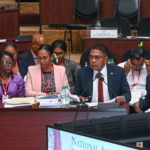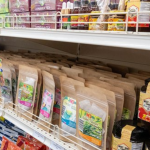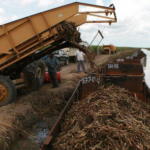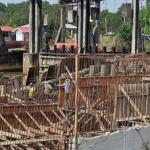The Ministry of Agriculture’s Hope Coconut Industries Limited (HCIL) is maintaining its action to issue notices to farmers who are in arrears. HCIL is of the view that the rent being requested from rice farmers are in keeping with the First Schedule, Rice Farmers (Security of Tenure) Act. Chap. 96:02.
As such, the Board is debunking claims made in sections of the Press by Attorney -at-Law Mr. Anil Nandlall who is clearly engaging in political grandstanding, by misleading the Hope Estate farmers’ into believing that an illegality is being forced upon them.
According to the Board and management, prior to the notice of increase in rental fees, consultations were held with farmers’ of the Hope Estate, pointing to the fact that, the increase in fees was based on provisions in the Rice Farmers (Security of Tenure) Act which states that rent for lands are to be paid based on the prevailing market value of three (3) bags of paddy per acre together with added expenses being incurred by HCIL which includes key facilities such as Drainage and Irrigation, in keeping with the Lease Agreement- which gives an all inclusive figure for rental of land, D&I and other services.
Under the Rice Farmers (Security of Tenure) Act the 3 bags per acre would considerately amount to $7,500. The cost for the supply of irrigation water, cleaning of canals, maintaining of structures, salaries for extension staff and management of estate etc is considerately estimated at $27M or $13,500 per acre for 2,000 acres cultivated land. As such in reality, farmers should be required to pay a total of $21,000 per acre of cultivated land and not $15,000 the HCIL is asking for.
Currently, the emphasis of Hope’s Management is to go after persons who are guilty of subletting of lands which is in contravention of the Lease Agreement signed with HCIL. To be noted is that some rice farmers are subletting lands for $50,000 or more per acre per crop but these same farmers are refusing to pay the increased rate of $15,000 per acre. Both the Lease Agreement and provisions in the Rice Farmers (Security of Tenure) Act caters for termination and re-possession in such instances.
To add to its predicament, HCIL has been only receiving a meager subvention sum of $3M per year to carry out works on the estate which is wholly inadequate. As a result, HCIL has embarked on a number of initiatives in an effort to become self-sufficient. These initiatives require a good working relationship and payment of rent by farmers to be successful. As such, a processing facility is underway which will see the estate purchasing coconuts and ground provision from farmers to be processed for local and regional markets, as part of phase one of the project.
Speaking on the Issue, General Manager of the Hope Coconut Industries Limited (HCIL), Mr. Ricky Roopchand, said such a move by the Board to push for value-added production augur well for farmers, as it is a means to ensure a secure market for its produce.
“We (Hope Estate) also intend to produce bottled coconut water as well. Another area of focus for us to boost our coconut seedling program is ensuring there are quality generic seedlings so that farmers can have access to year round,” Roopchand said.
He added that while it is the aim of the HCIL to ensure that production and productivity increases, it is also mandatory that the Estate look at revenue generating measures which can better position the entity to keep afloat without the injection of government subsidies.
During the 2017 budget reading in the National Assembly several semi-autonomous agencies were advised that they will not be receiving government subsidies come 2018 and as such will be required to look at self-general measures.





